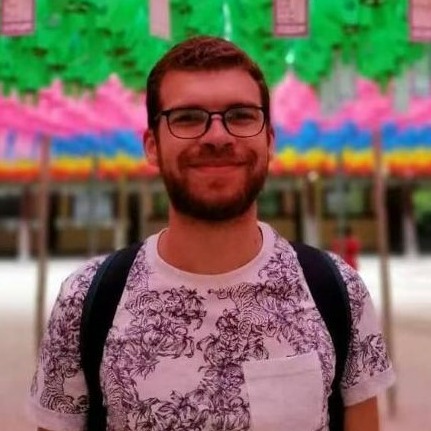Daniel Vasconcelos
Doctor of Philosophy candidate
Urban planning, Urban design, Housing

Biography
I'm a PhD candidate in urban planning at the Faculty of Architecture, Building and Planning, Melbourne School of Design, the University of Melbourne. Holding a Master's in Politics and International Relations from the Yenching Academy of Peking University and a BSc in Political Science from the University of Brasilia, I have published peer-reviewed and news articles from various topics, such as Chinese politics, urbanism, international cooperation, energy policy, etc. I've already coordinated and organised academic conferences in Brazil, China and Australia, taught at secondary and tertiary education levels, and volunteered in educational projects for the education of black communities in Brazil. I’m a research fellow at CEASIA/UFPE and was a sessional Academic Mentor at Keru Knowledge and English, Geography and History teacher for the American School. Currently, I'm an academic tutor and leader of a grant-funded initiative at the University of Melbourne. My research focus at the moment is on the implications of digital technologies for housing and other urban spaces, and more specifically on the nexus between creativity, technology, and the built environment by focusing on the changing housing dynamics of home-located creative workers in Melbourne.
Thesis
IMAGINING TECHNO-CREATIVE HOMES: The housing dynamics of home-based artists and designers in Melbourne, Australia
The COVID-19 pandemic catalysed a transformation already underway. Borrowing Michell’s (2000, 2003) terms, the digital revolution have loosened the “person-to-place contiguity requirements” for a wide range of occupations. This meant more work flexibility and discontinuity throughout time and space. Miniaturised laptops and wireless connection, among many other technologies, enabled many people to leave traditional workplaces and work at a café, at a park, or at home. In fact, as many scholars have been anticipating (Haddon & Silverstone, 1995; Haddon, 1998; Gurstein, 2001; Donkin, 2010; Castells, 2010), remote work with the assistance of digital technologies is a real – though partial – alternative to traditional modes of work in our post-industrial society.
But, how about our housing dynamics amid this great transformation in work life? After the adoption of technology-induced, home-based work, do people still reproduce the same uses and preferences for housing as their traditional peers? Do they feel home is less “homely” and more like an office cubicle because their housing has been transformed into a workplace? Do they have new preferences for the location and design of their housing spaces? What are their creative adaptations (spatial and behavioural) to deal with the ubiquity of work in their homes? How has their “dwelling in the world” (Heidegger, 1993) changed, and what are the implications for the city?
Through mixed-methods and design ethnography research, which conciliates quantitative and qualitative data, I seek to answer the overarching research question: How is the digitisation of creative workers affecting their housing dynamics? My proposed framework is deeply rooted in relational urban theories and the emerging scholarship on technology and home-based work. Moreover, I will use statistical tools and grounded theory techniques to analyse authoritative documents, census data, in-depth interviews, and physical and virtual observations in the Melbourne Metropolitan Area. With this, I intend to narrate new socio-spatial dynamics enabled by digital technologies in the context of home-based creative work.
My argument is that we cannot think about work, and creative work more specifically, without considering the interaction with and of technology and space. I argue in this thesis that technology-induced creative work in the home is a central phenomenon in contemporary creative industries and an emblematic case to understand how new housing dynamics at the metropolitan level unfold amidst a growing population of home-based workers.